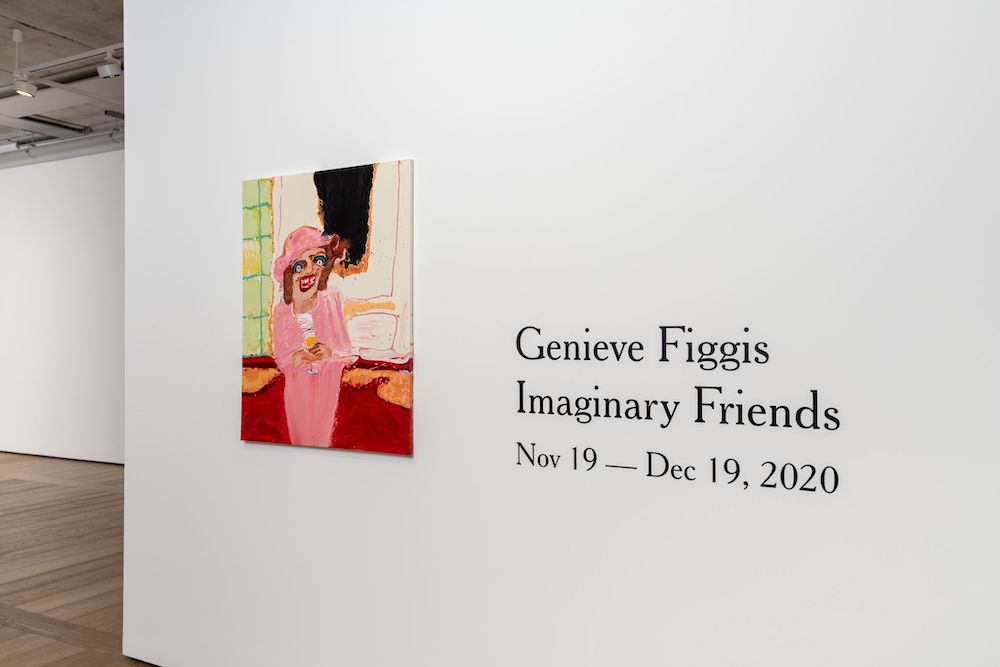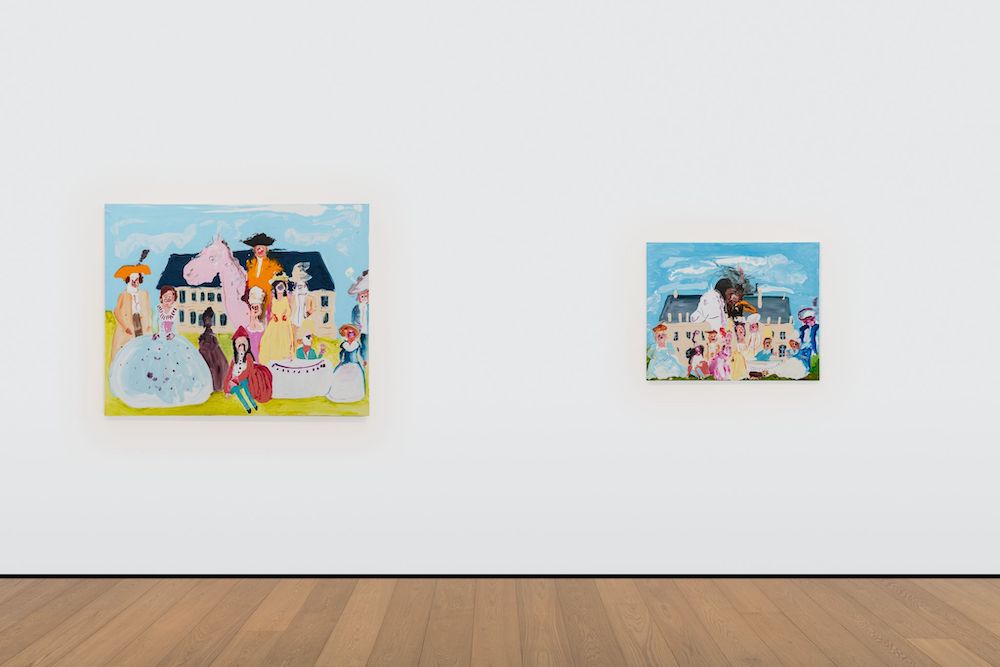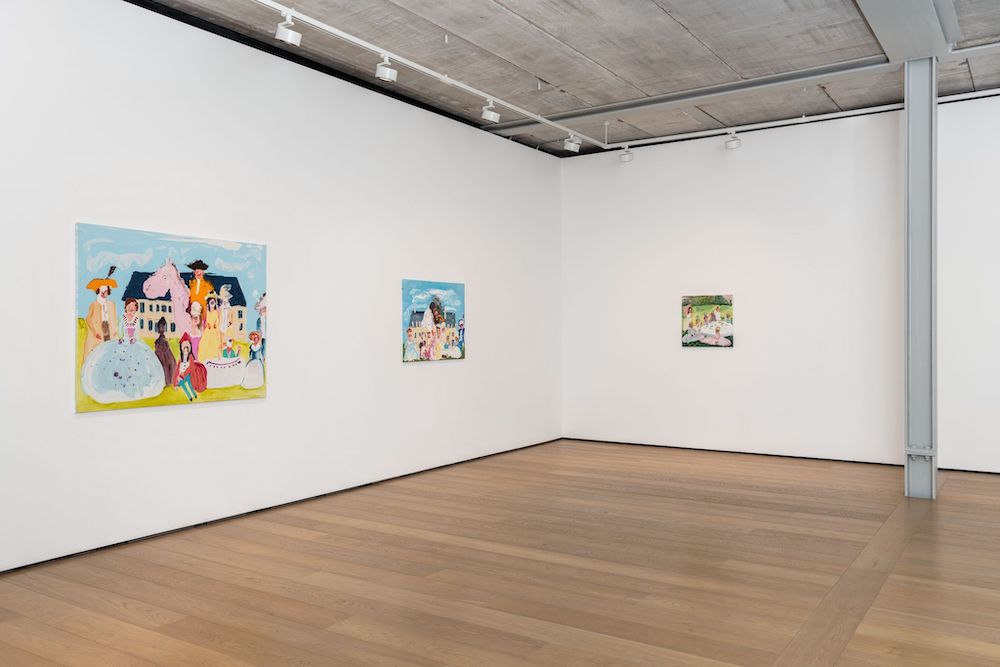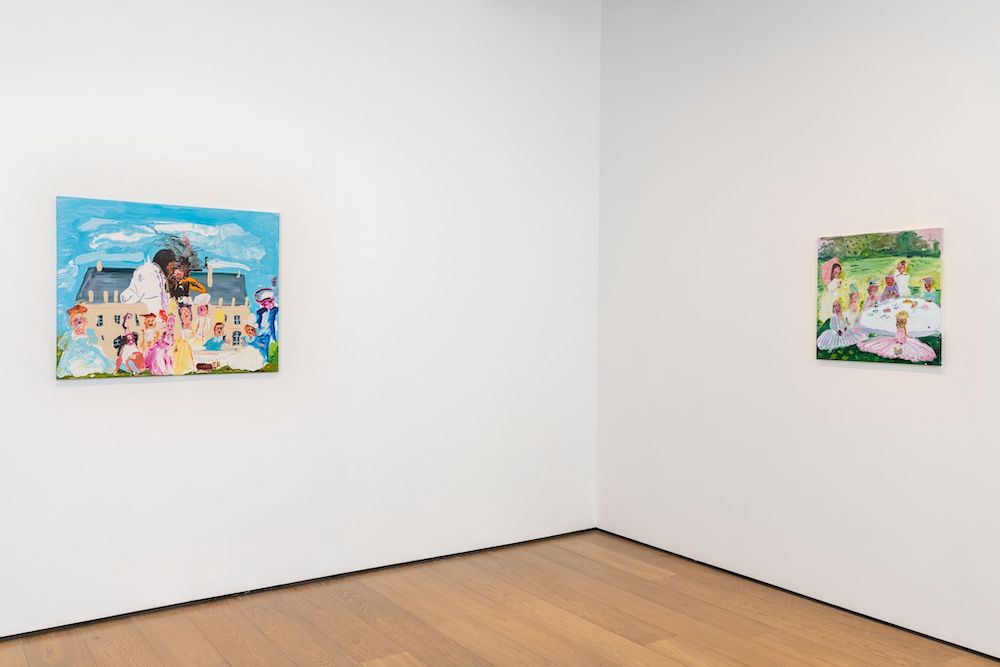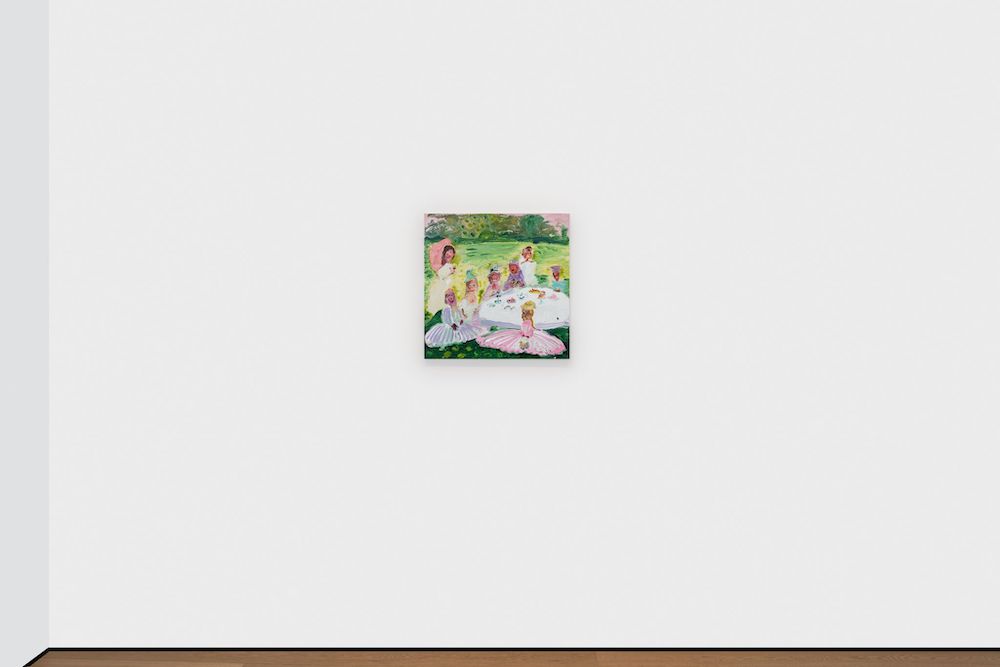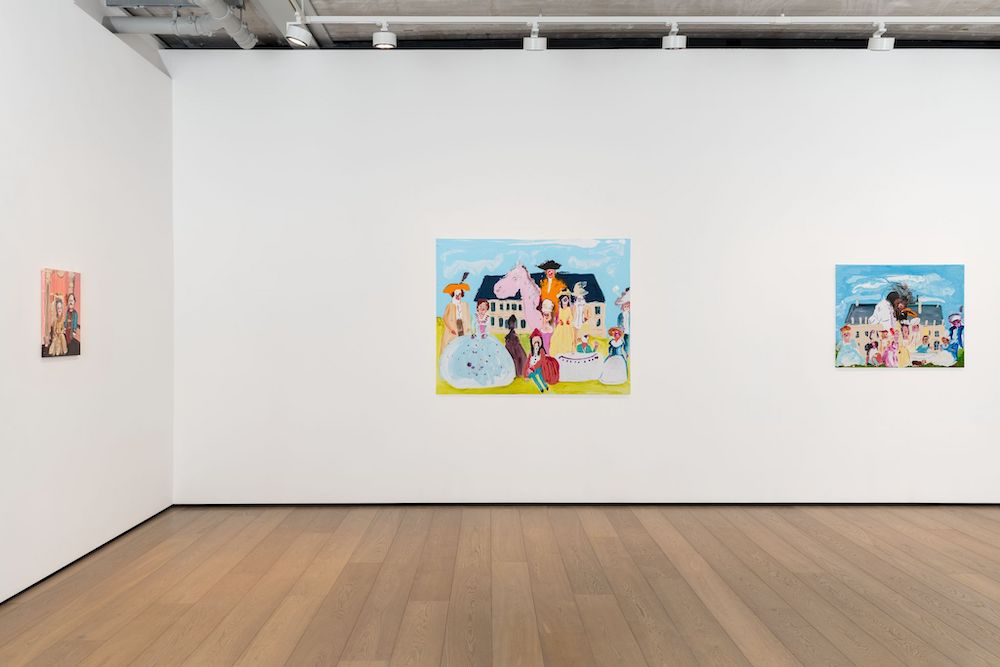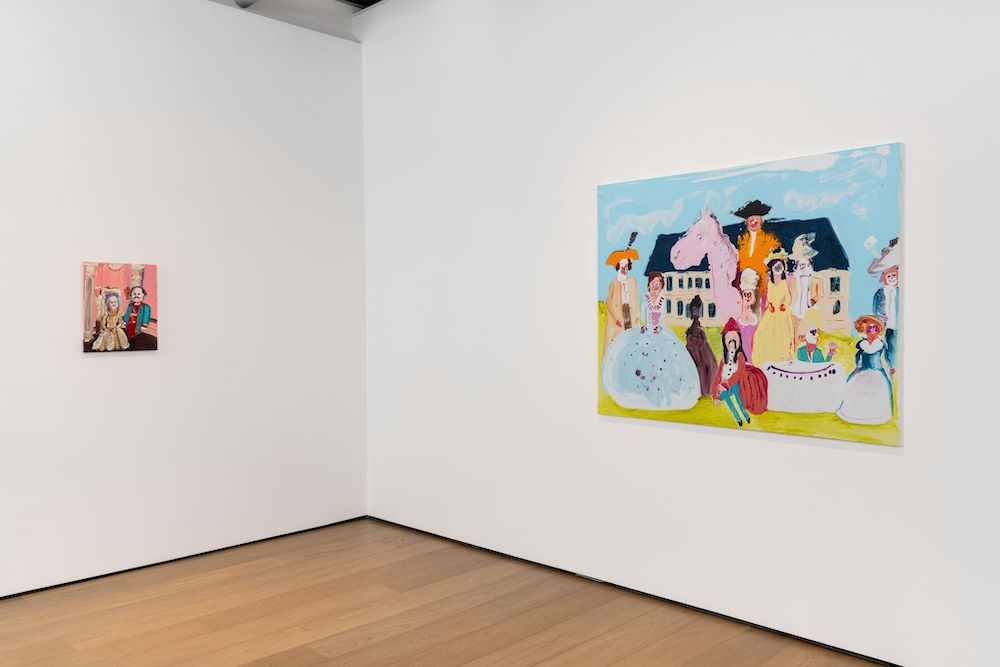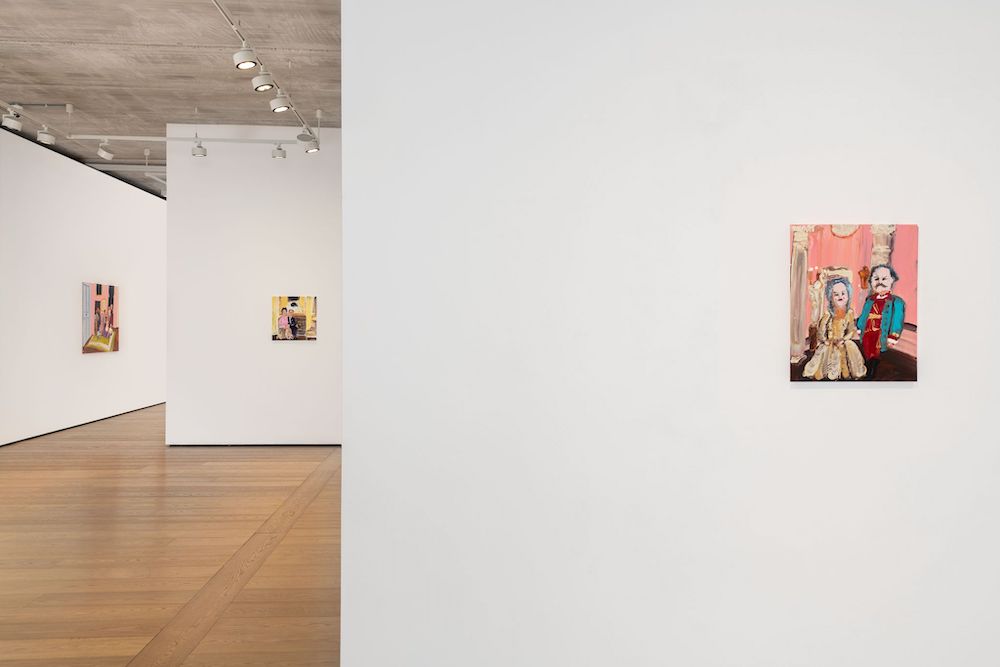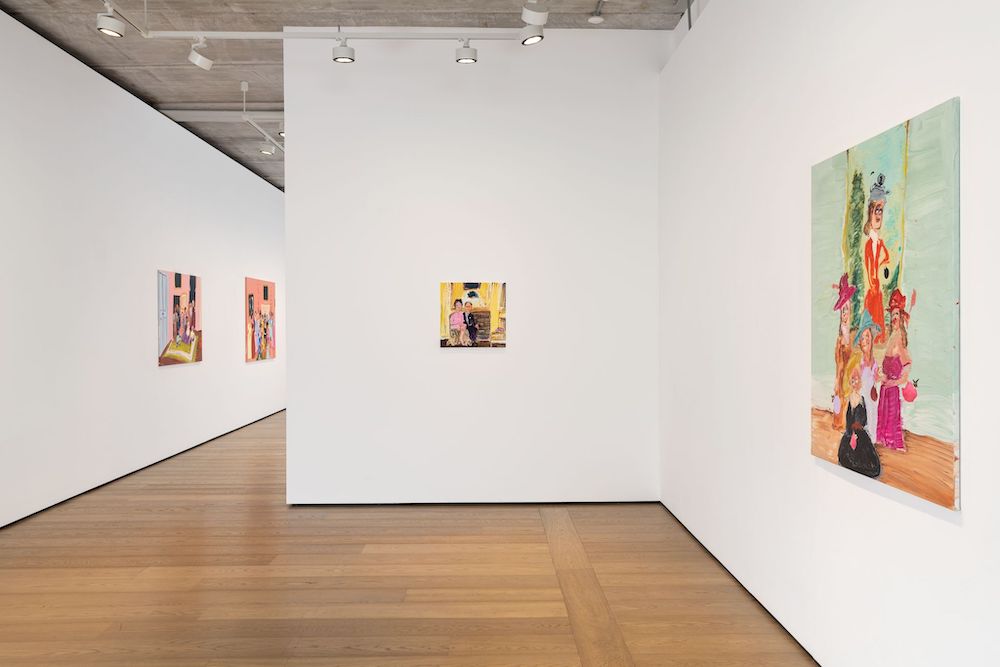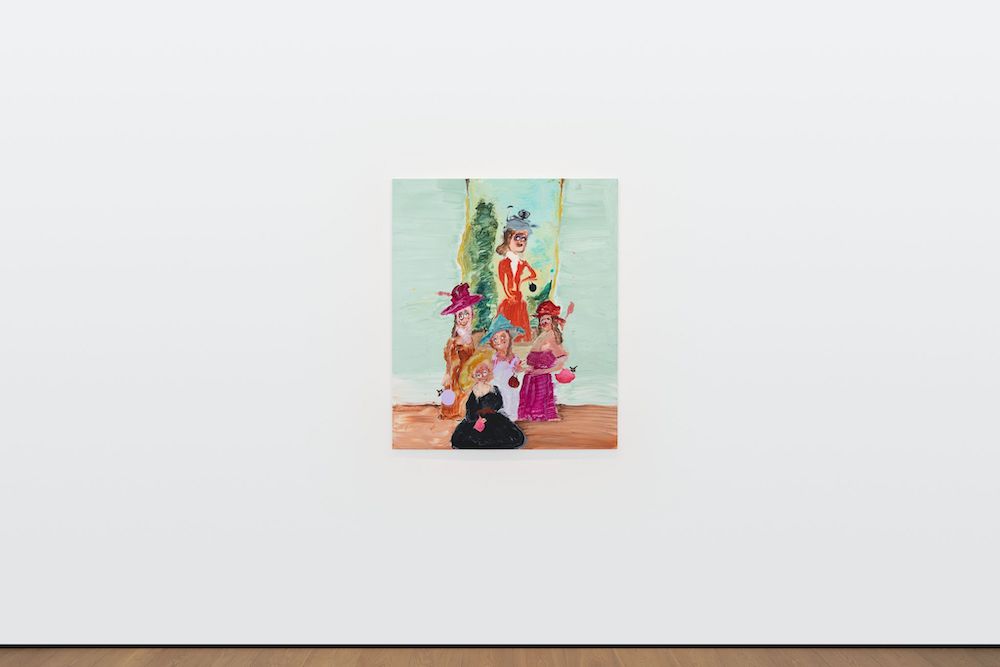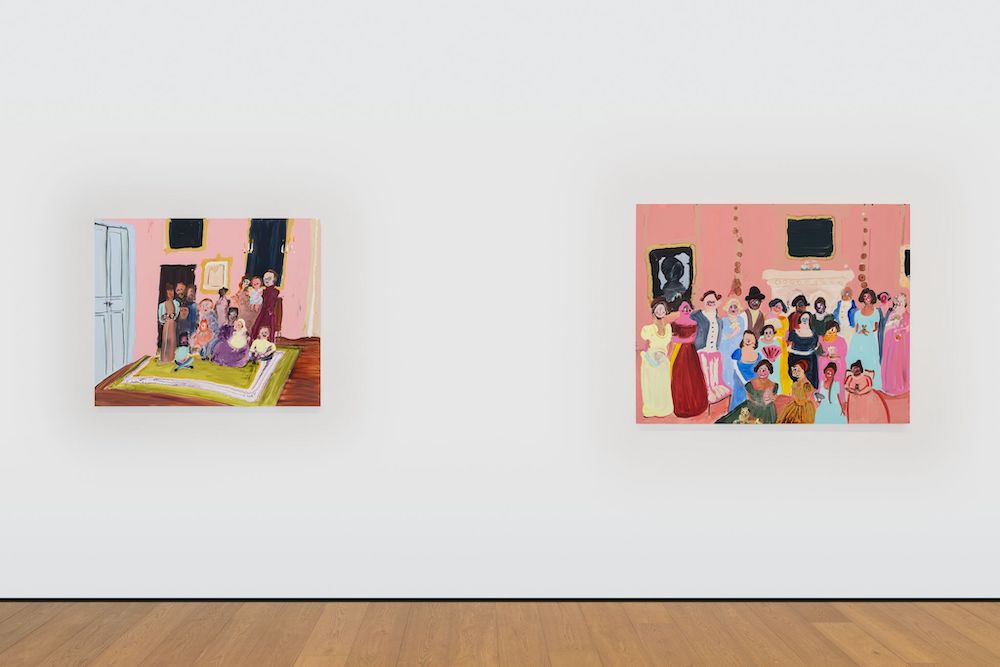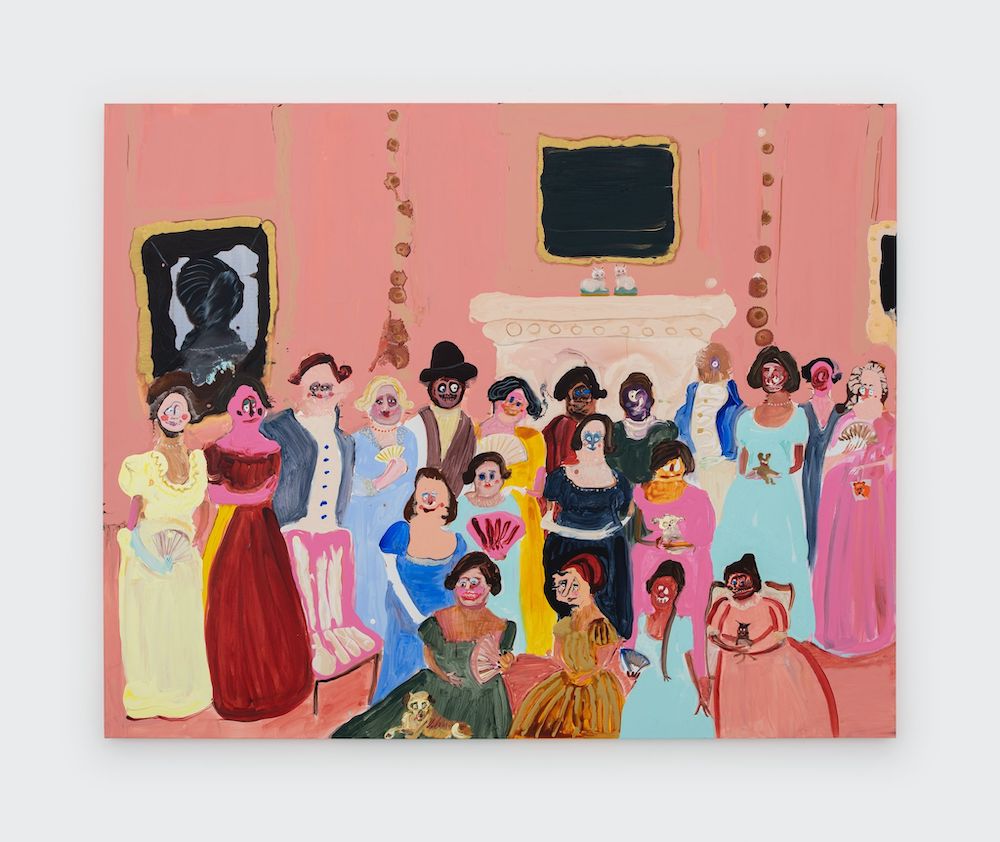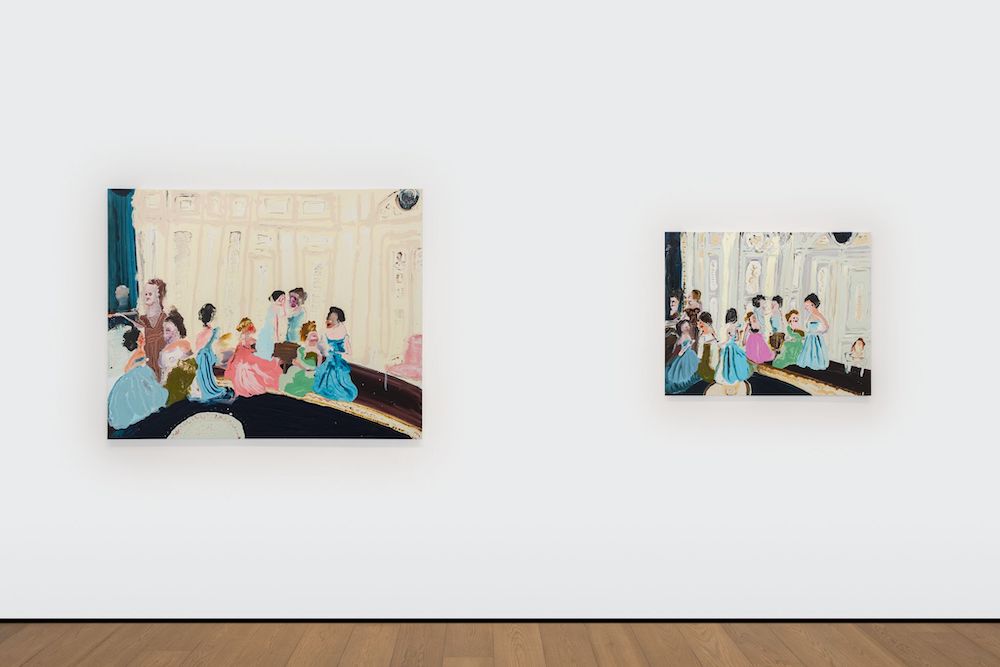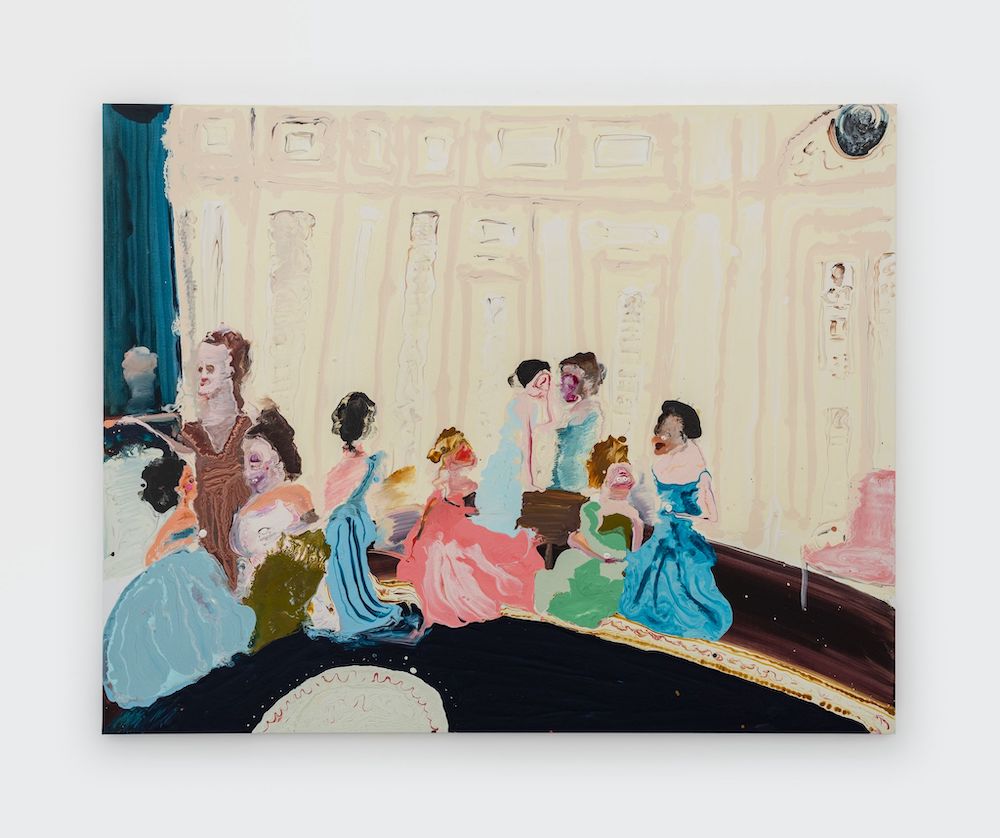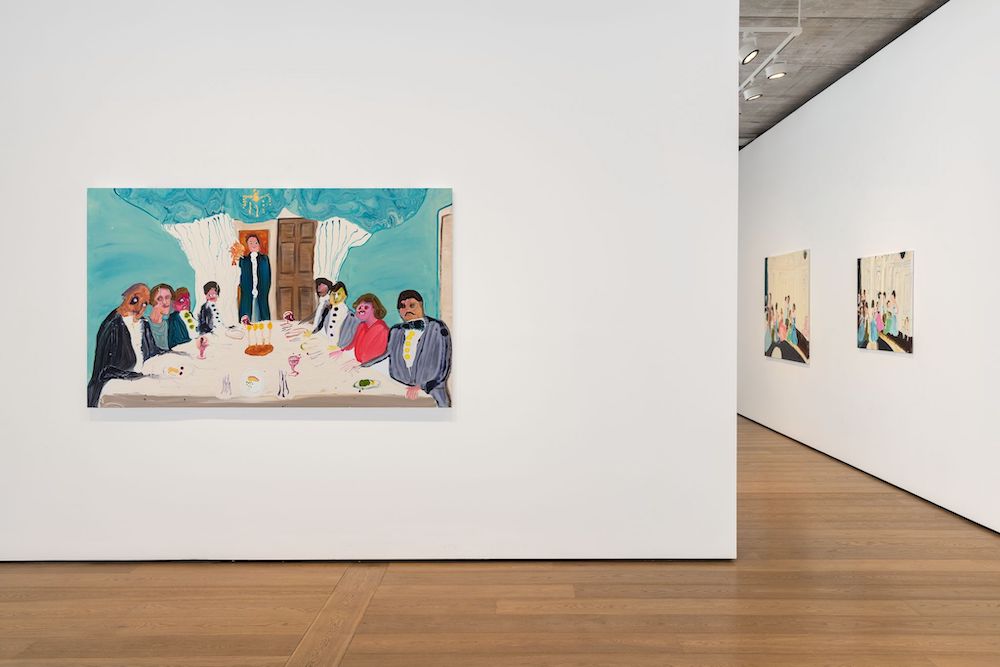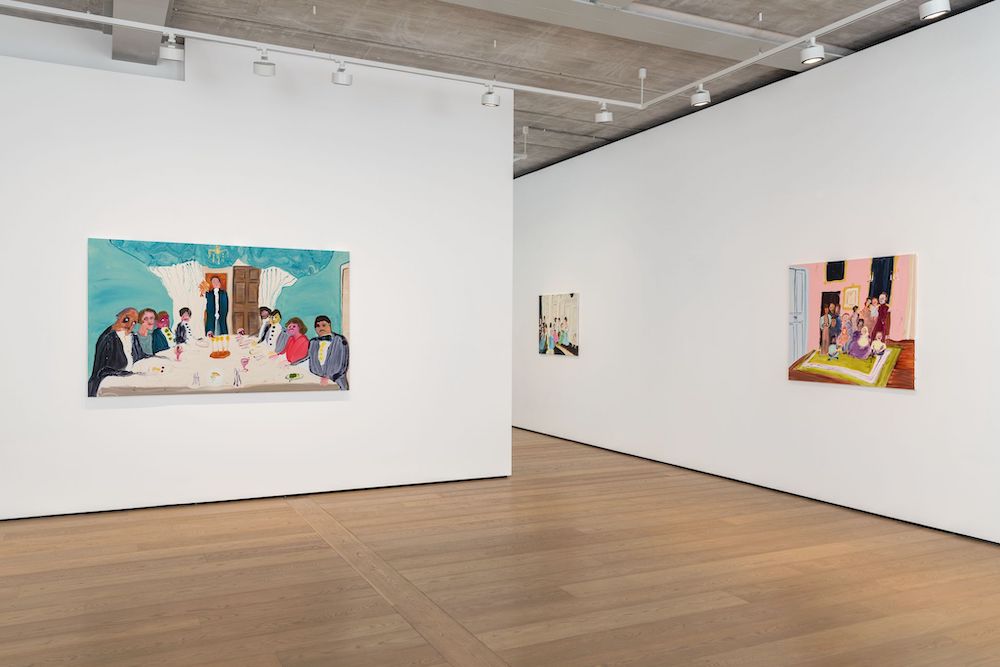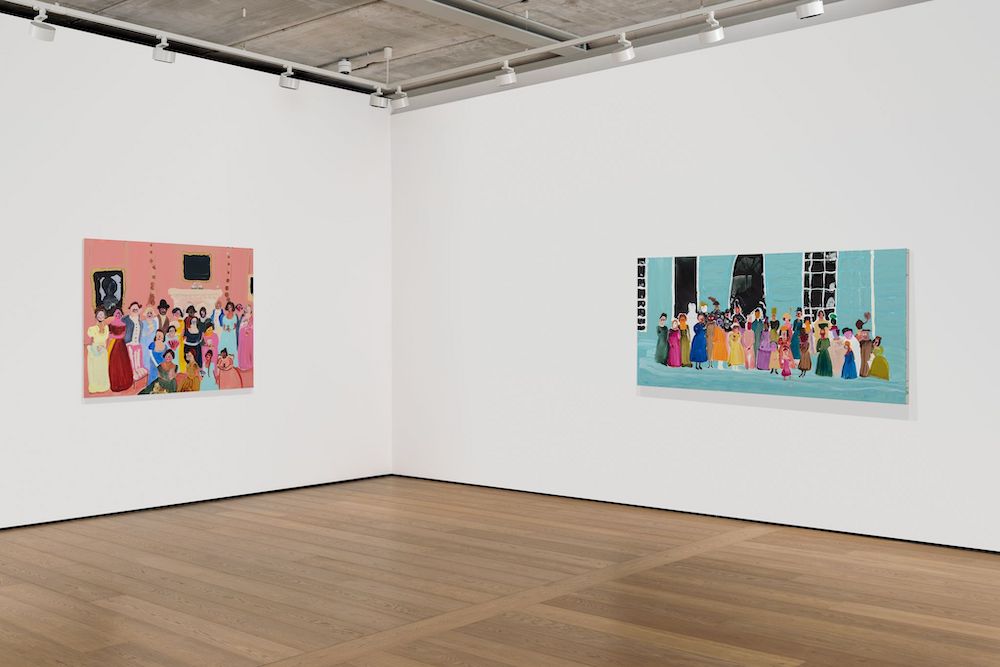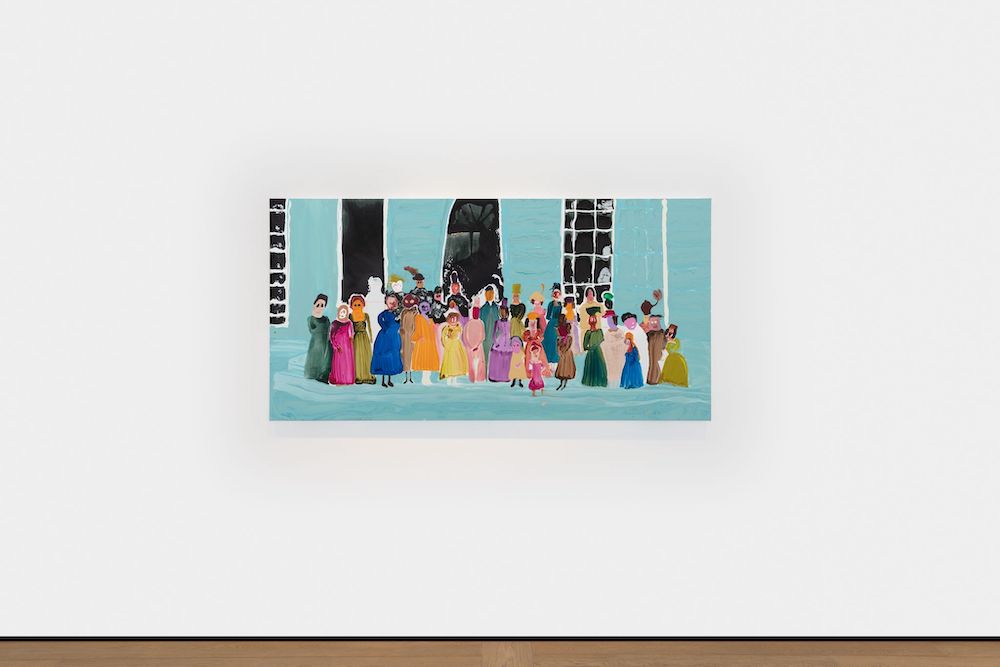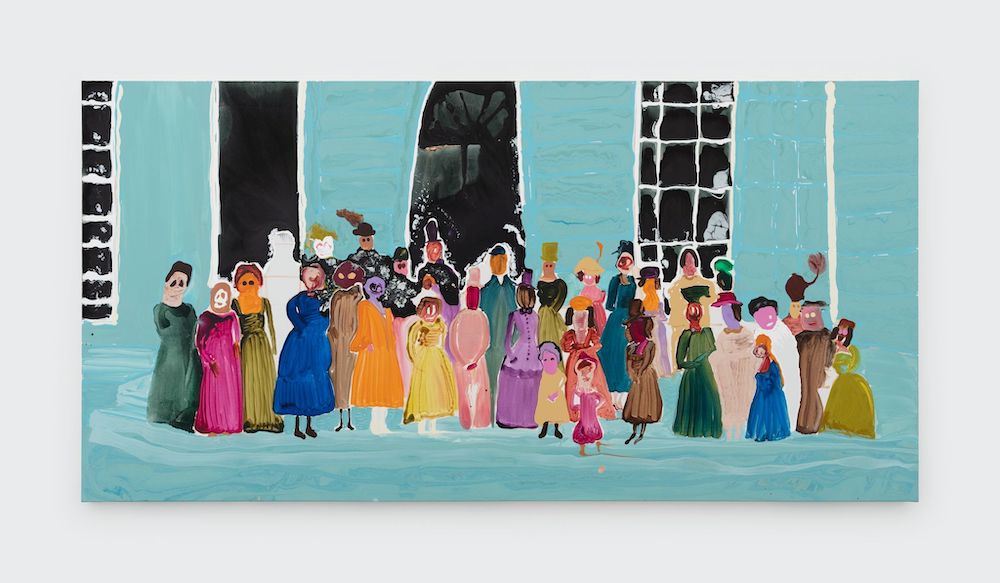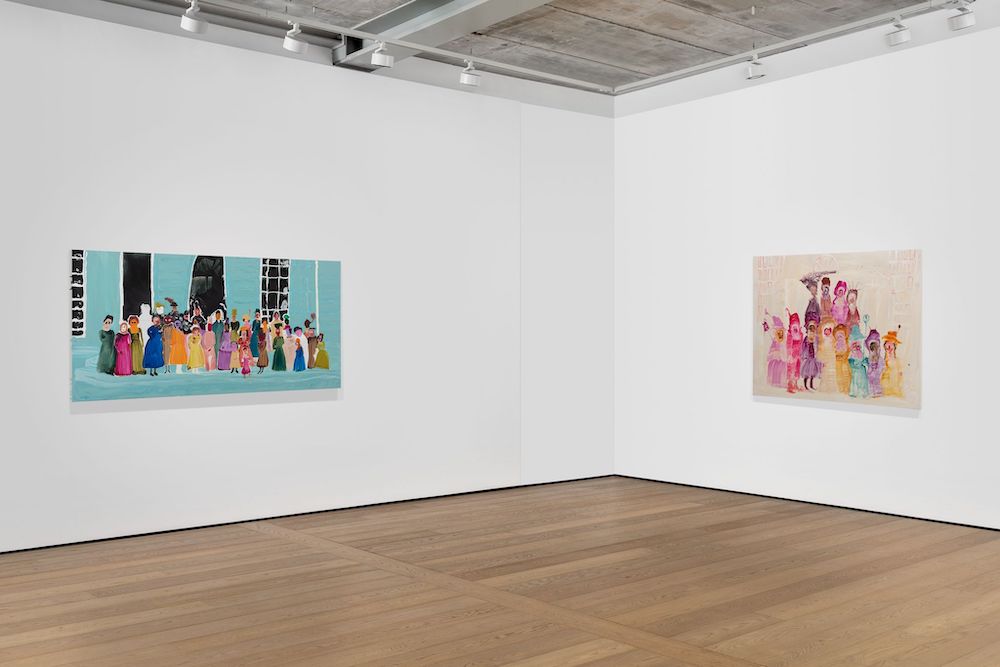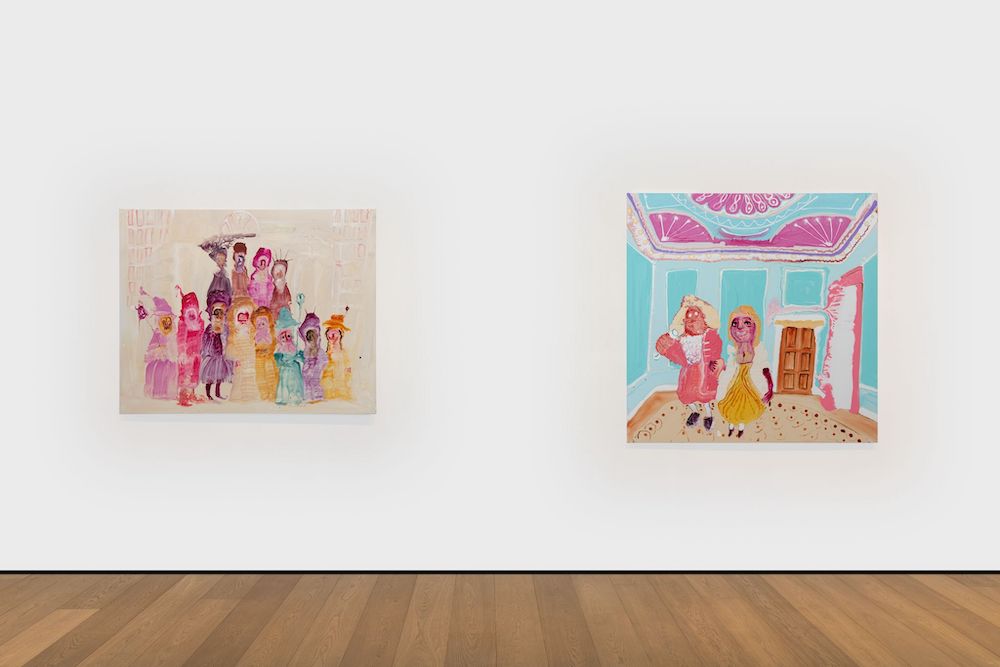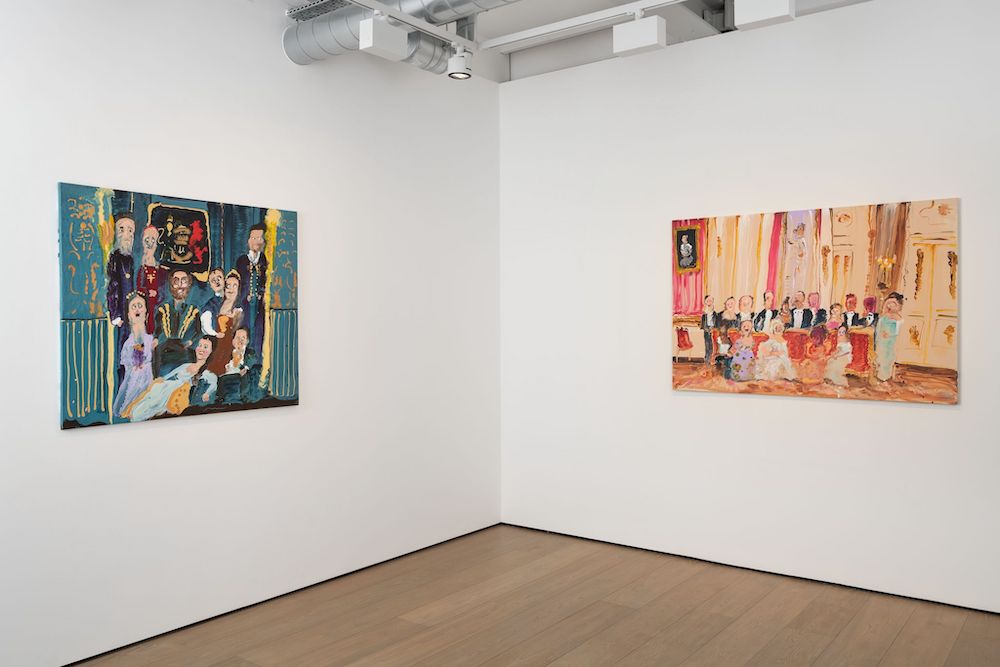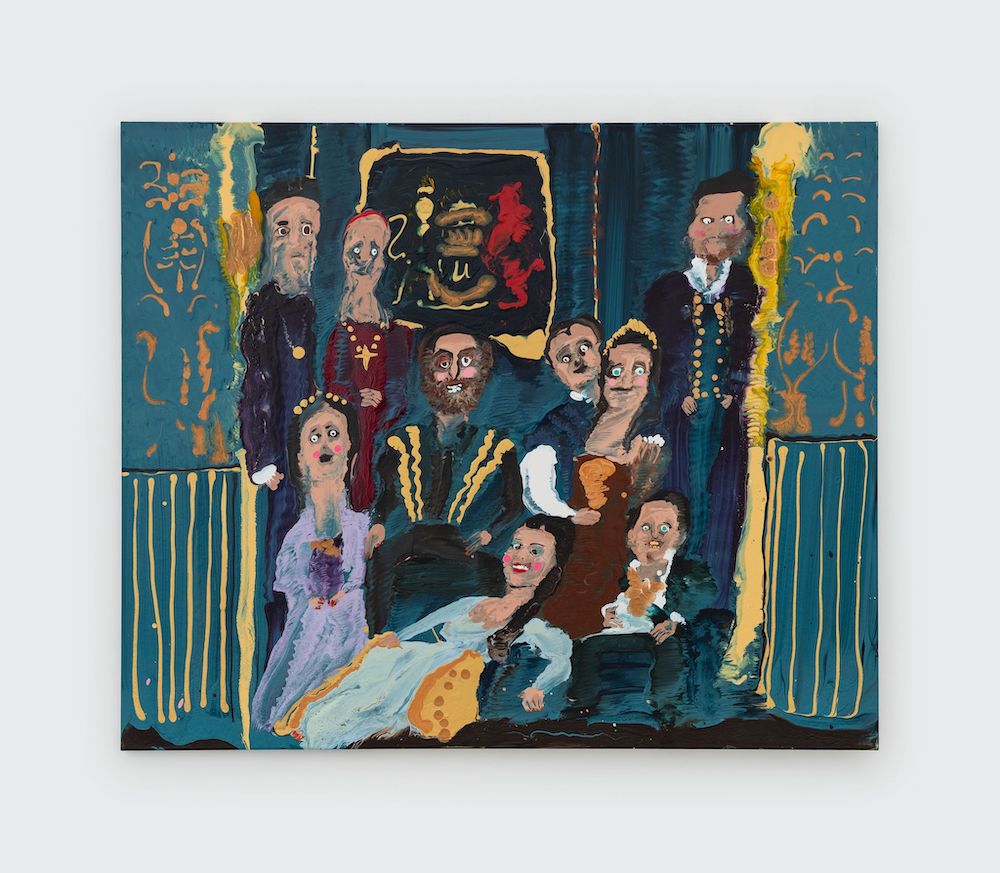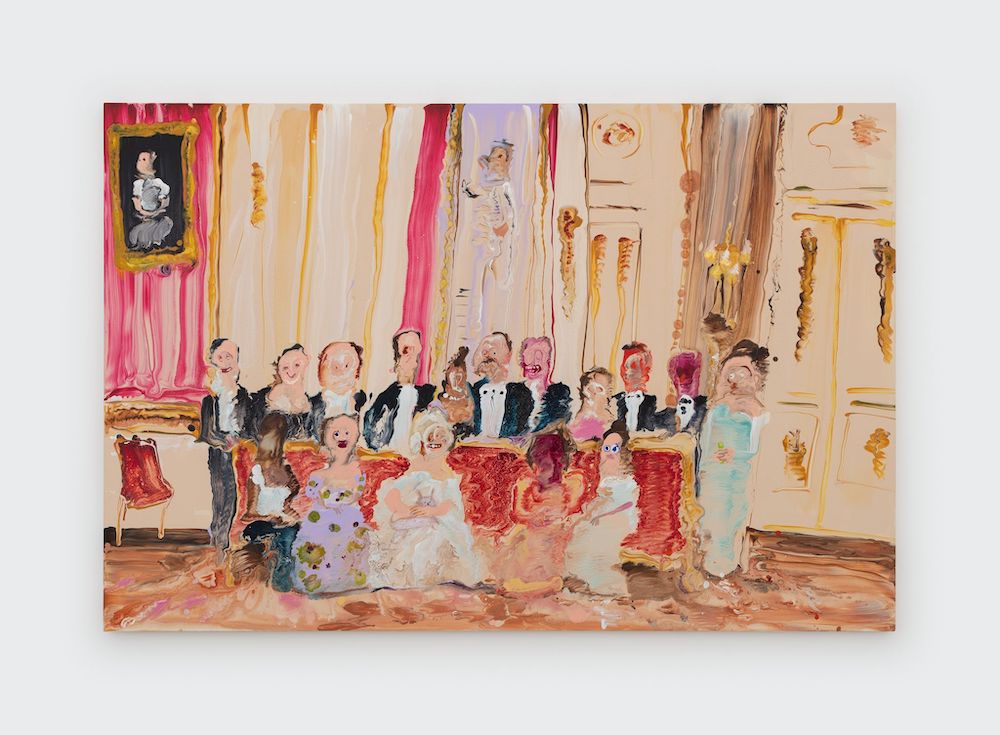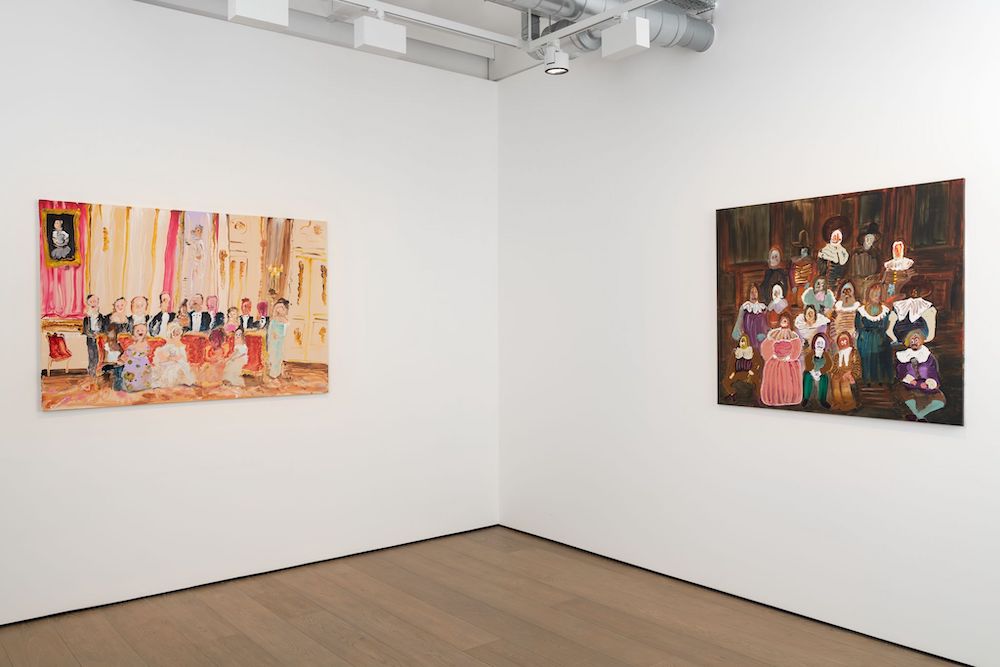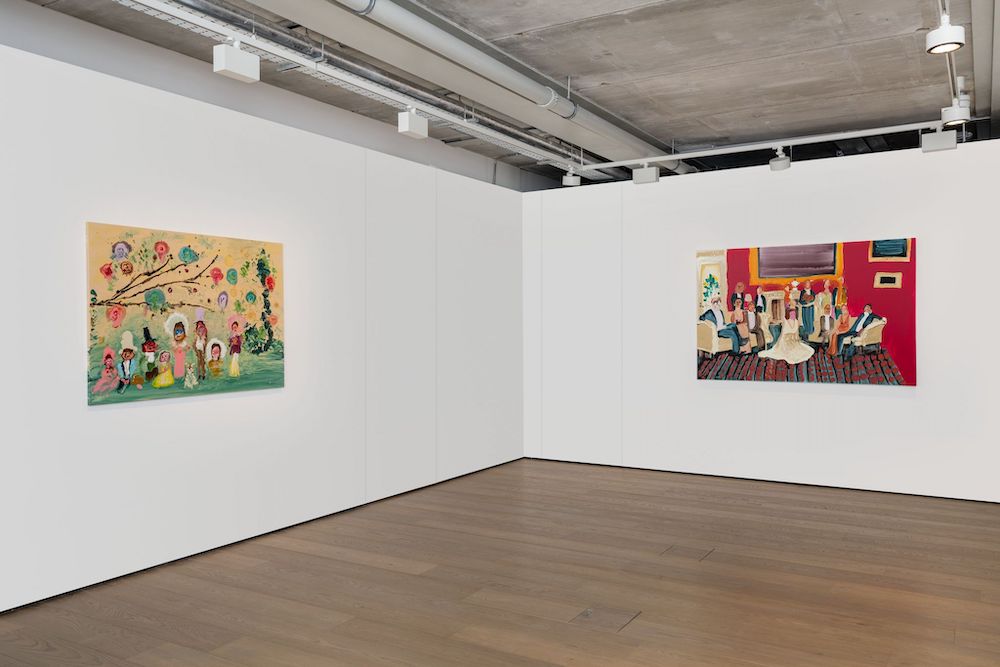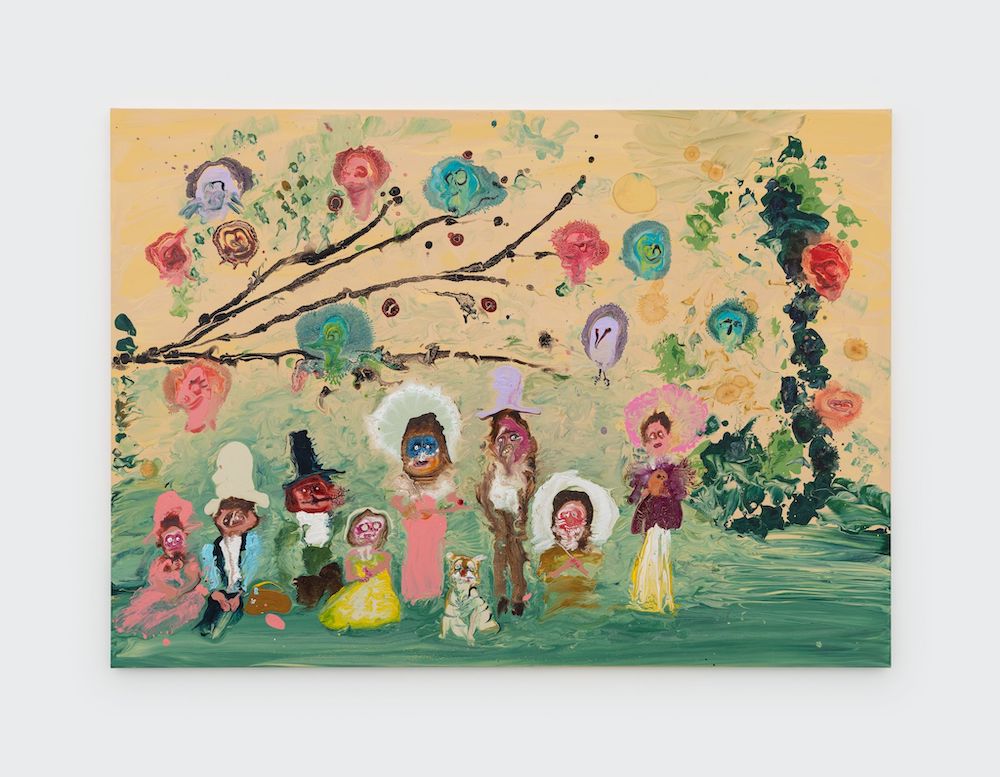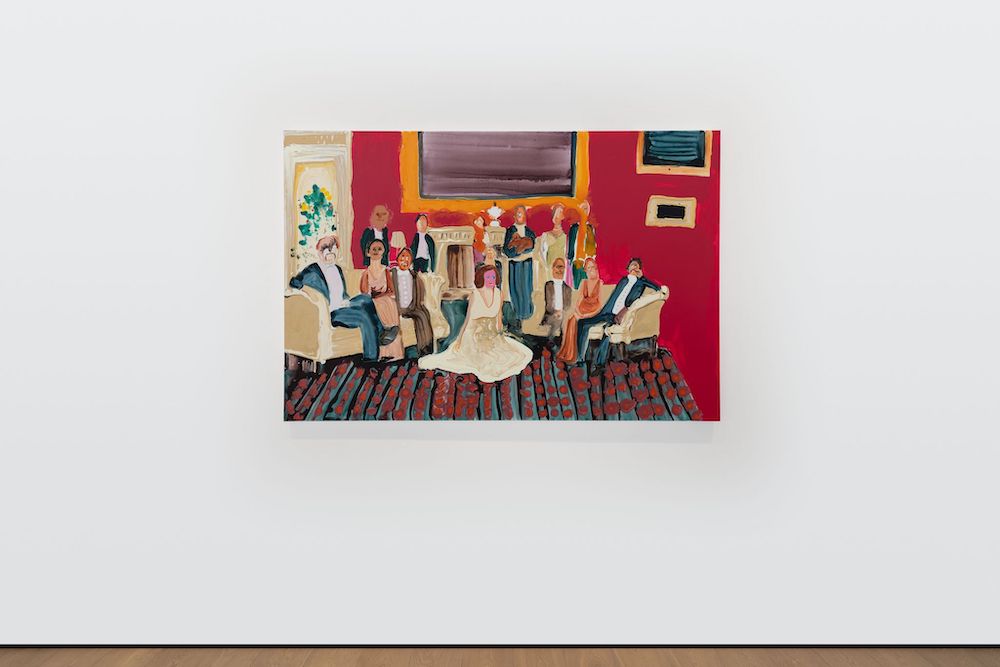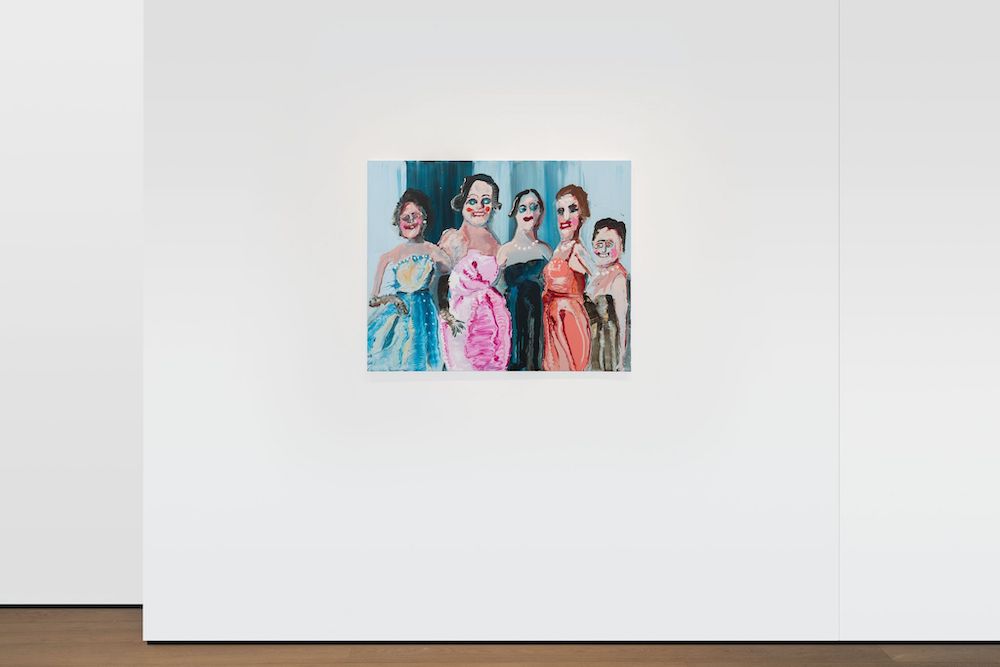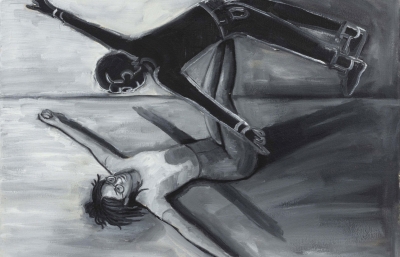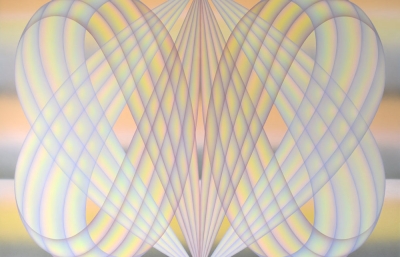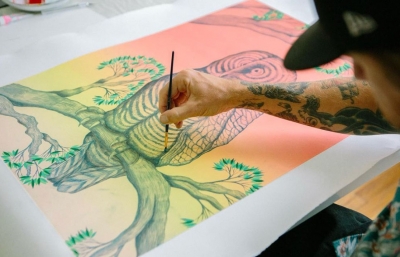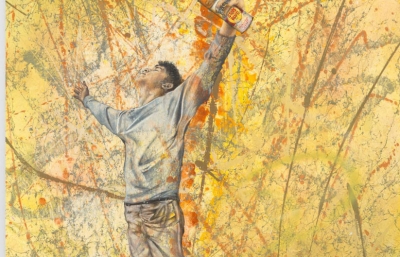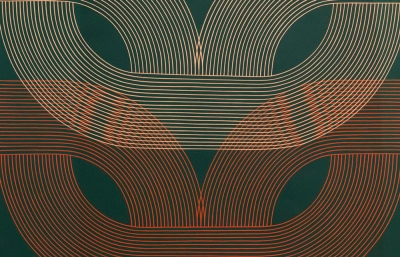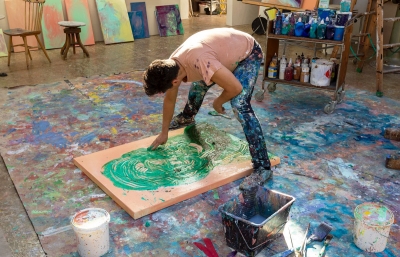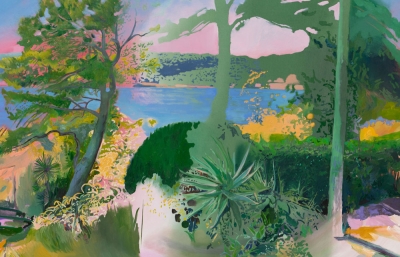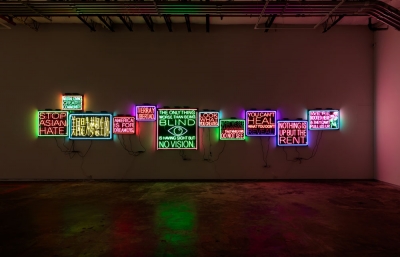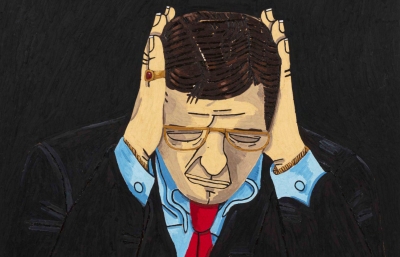Childhood is the time before there is a sense of time, before there is a notion of boundaries, whether a steep flight of stairs or what is deemed an appropriate friendship. Plush stuffed bunnies and action figures serve as available companions, “in sickness and in health”, and especially in moments of loneliness or intense emotional distress. Made-up friends listen, acquiescent to being manipulated, actually nurturing young imaginations. But then social structure sets in, ushering a whole new ball game, seemingly one that goes into overtime.
And then the pandemic … when we just might discover Imaginary Friends, which incidentally is the title of Genieve Figgis’ fifth solo exhibition currently on view at Almine Rech in London. Painted over the long months of COVID-19 confinement, blurred faces, features askew, float among salons and group portraits, vague memories of parties of the past, perhaps an amalgam of associates and passers-by. “As I made this work, I found these figures slowly surrounding me and the faces became my only companions.”
Interested in classical art, this body of work continues Figgis' exploration of social portraiture, including its limitations. References to the past are signature to her work, with its abundant references to Baroque, Rococo, Expressionism, Symbolism, and Impressionism, Historic group photographs and portraits, as well as a penchant for period costume, play important roles in a painterly technique that centers on eyes and mouths that gape out at the world in wonder.
Working without preparatory drawings and in a fluid manipulation of paint, the Irish artist creates faces that are equal parts fantasy, memory and apparition. The exaggerated depiction of aristocracy is comical, maybe derisive; but like movie stars on the red carpet, relics of a past life, we almost miss their preening posturing. In almost grotesque, manipulated imagery they become Imaginary Friends, and sometimes scarily, faces in the mirror. —Sasha Bogojev



